Interview with Huawei "Genius Youth" Li Bojie (Part 2): Giving Up a Million-Yuan Salary to Start a Business, the Persistence and Reinvention of a USTC Alumnus
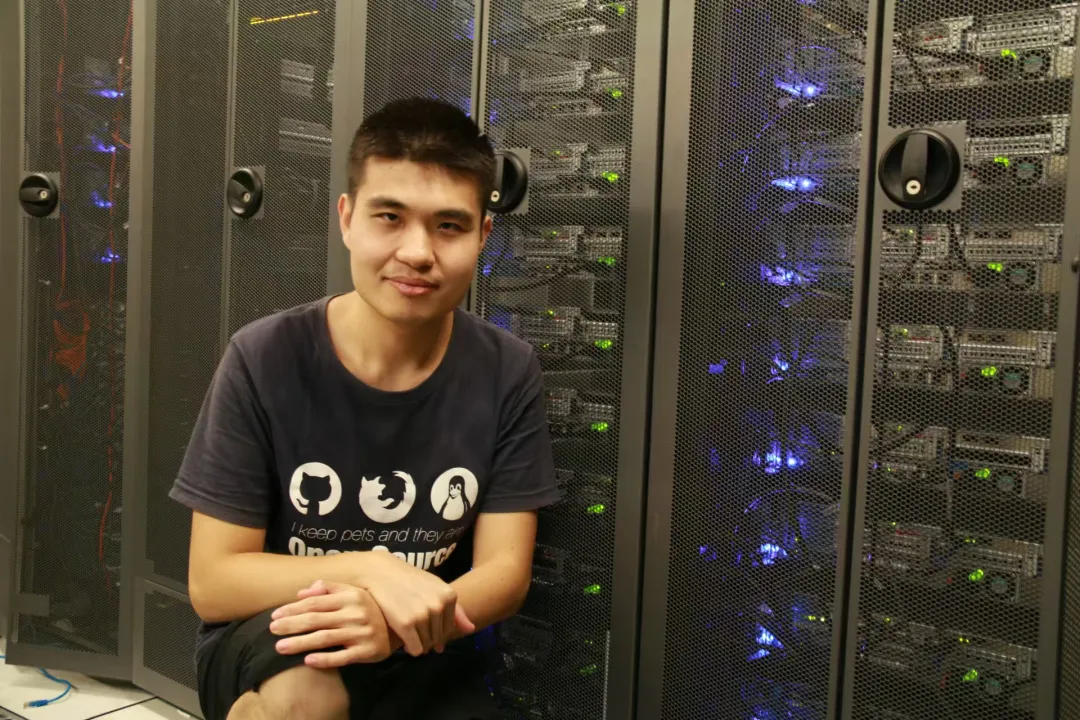
Long article alert, this article contains 11221 words, estimated reading time 29 minutes
“Dialogue” is a series of in-depth interview columns launched by the Woke Advanced Alliance. We invite and interview outstanding alumni from USTC who have experienced detours, tasted setbacks, and achieved accomplishments during their university life at USTC. We hope to showcase their various life experiences and personal choices through in-depth dialogues, hoping that the experiences of these predecessors can illuminate more paths for the younger generation at USTC.
In this issue of the dialogue column, we invited Senior Brother Li Bojie (personal homepage: 01.me/), a USTC 1000 alumnus, USTC MSRA joint training PhD, one of the first Huawei “Genius Youth” awardees, AI entrepreneur, and co-founder of the USTC course evaluation community. He was an assistant scientist and deputy chief expert at Huawei’s Computer Network and Protocol Laboratory. He has published multiple papers at top conferences such as SIGCOMM, SOSP, NSDI, and ATC, and has won the ACM China Outstanding Doctoral Dissertation Award and the “Microsoft Scholar” scholarship.
This article is original by Woke Advanced Alliance. Do not reprint without permission.
Interview, Editing | Feng Wenjun, Chen Lei, Su Qicheng
Proofreading | Zhao Guohua
Theme Summary
Transition from University to Work Environment
How to Develop Skills to Adapt to Job Positions
Entrepreneurial Challenges and Reflections
Job Search Advice and Preparation Strategies
Employment and Self-Improvement in the AI Era
Will AI Cause Unemployment Issues
How to Embrace AI Tools to Empower Work and Study
Stepping Out of the Ivory Tower
“Transition from Learning to Working”
Woke Advanced Alliance: Previously, we talked about your university life and advice for students. After graduating with a PhD, you started working. What do you think are the core transitions from leaving the ivory tower of school to entering the workplace?
Li Bojie: I think the biggest difference is that after joining Huawei, I realized it is a commercial company, not a pure research institution. At that time, Huawei’s 2012 Lab was known as a pre-research department, which was relatively research-oriented. However, our work was still centered around commercial applications, meaning we conducted research a year in advance and then spent half a year commercializing it. This clear time frame is not common in academic research. Although we were not directly responsible for the actual product transformation, we built a bridge between research and products, taking on the role of connecting these two fields.
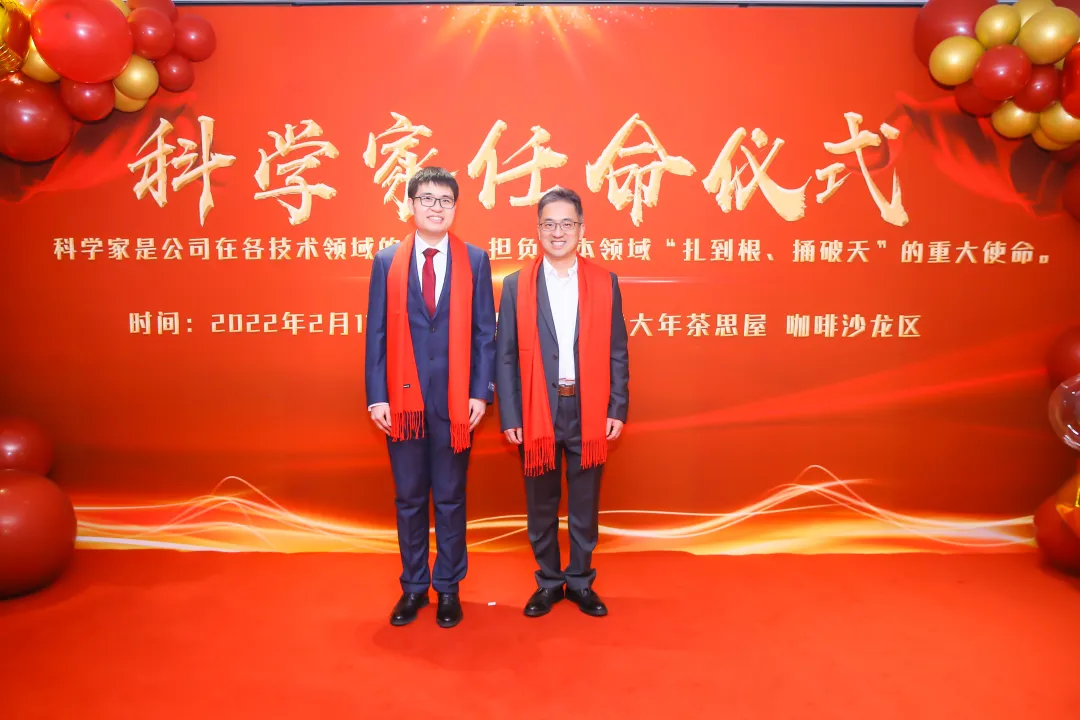
Image: Li Bojie at Huawei Scientist Appointment Ceremony
At Huawei, the most important thing is to create commercial value, which is very different from the academic environment at MSRA. The atmosphere at MSRA is relatively pure, and research results can be published solely in the form of papers. However, at Huawei, my work must create actual commercial value. This transition taught me how to judge which research directions have commercial potential. I realized the importance of this because it directly affects our research direction and final results. We cannot be satisfied with just publishing a paper; we must ensure that our research results can have a commercial impact.
Additionally, as a platform department, we received demands from multiple product departments, such as cloud computing, mobile phones, AI, and storage. The diversity of demands made our work more complex and challenging. We had to avoid falling into the inefficiency of an outsourcing company because if we became an outsourcing company, it would be disastrous.
Our goal was to create general solutions, not just provide customized services for specific needs. For example, we developed an advanced high-performance remote procedure call (RPC) system that was ten to a hundred times faster than traditional TCP in data centers. On mobile phones, it could leverage the characteristics of wireless networks and the capabilities of the operating system protocol stack to improve upload and download speeds, reducing the time to upload photos from ten seconds to one second. The key to this RPC system was that it could be used in multiple fields, whether in data center cloud computing, AI and storage, or on the mobile phone end, making it a general technology.
Overall, the main difference between my experience working at a company and academic research is: first, there is a greater emphasis on commercial value; second, there is a commitment to developing general solutions rather than specialized custom projects.
Woke Advanced Alliance: What changes do you think have occurred in your personal abilities?
Li Bojie: I think there are mainly two changes: communication skills and management skills. Both are abilities related to dealing with people. In academic departments, such as MSRA, work is often more solitary. I was responsible for a project, leading a few junior students to complete it, and the reporting relationship was relatively simple, usually only needing to report to my mentor.
But at Huawei, the situation was very different. Generally, we had daily morning meetings to discuss progress with the team, not just once a week. If there were problems with progress, I had to find ways to communicate with different people to solve them. Additionally, I spent a lot of time communicating with other departments about requirements and technical solutions to ensure that customer needs were met. These required a lot of time and effort. During my years at Huawei, I even felt that I transformed from an introverted person to an extroverted one. I remember during my PhD, when I took the MBTI personality test, I was consistently identified as a very introverted person, but after leaving Huawei, I had become an extroverted person.
When I first joined Huawei and went on business trips to other departments, I always forgot people’s names when meeting new faces, so I felt embarrassed and hesitant to greet them the second time we met. At that time, I even asked my leader to help me call colleagues from other departments I didn’t know because I felt embarrassed to contact them if I didn’t know them. However, my leader told me that this was part of adapting to the workplace and encouraged me to interact more with people. Although I still don’t consider myself strong in communication skills, my mindset has changed significantly. I used to fear interacting with people, but now I am no longer afraid, even if I make mistakes.
Of course, I’m not saying everyone should change from introverted to extroverted; this is just my personal experience. However, I do believe that communication skills are very important in the workplace, especially in an environment that requires frequent collaboration.
The second aspect is management skills. Honestly, I feel that my management skills are still not strong enough. In a company, individual abilities are always limited, and it’s impossible to work alone; you must rely on a team to complete tasks. Therefore, I need to manage the team’s progress, recruit suitable candidates, and understand the progress of team members. If someone is progressing slowly, I need to find out the reason, whether it’s a mindset issue, lack of work ability, technical difficulties, or even physical discomfort. Once, my leader told me that as a manager, I needed to have the ability to read people’s expressions and emotions. This ability is to keenly perceive the emotions and states of team members. For example, if a subordinate has a quarrel with their spouse, as a leader, you should be sensitive to this. At that time, I thought, “How would I know they quarreled? They won’t tell me.” My leader told me that if you think this way, you are not a qualified leader.
“Preparing for Work in Advance”
Woke Advanced Alliance: For students who haven’t entered the workforce yet, how can they develop these skills? How did you prepare in advance?
Li Bojie: I think you can do more things in school, such as participating in club activities during your undergraduate years, which can help develop management and interpersonal skills. I remember when I was in the Linux User Group, my social skills were very poor, and I didn’t even dare to call strangers. This situation was particularly evident before I went to university. In middle and high school, I stayed at home and only focused on studying, rarely participating in other activities, which prevented me from developing social skills. I even felt a bit nervous going to the convenience store to buy things.
I remember when organizing activities, we needed to buy water and make posters. Every time I went to the store to make posters, I had to ask a classmate to accompany me because I felt nervous going alone. This companionship slightly eased my nervousness when facing strangers. When ordering water, I had to call, and at that time, there was no food delivery service, so I often felt at a loss during phone communication, not even knowing how to start. When asking the seller, I often hesitated between choosing a 1.5-yuan Nongfu Spring or a 1-yuan other brand, which made me think for a long time, and my classmates found my indecision about buying water amusing. These experiences were slowly developed in school, so I believe participating in more activities in school, such as academic activities, various scientific research competitions, and club activities, are great opportunities to develop management and interpersonal skills.
Woke Advanced Alliance: Indeed, and I think the opportunity cost of doing these things in school is relatively low.
Li Bojie: You’re right. The opportunity cost is indeed lower. If problems arise or mistakes are made in a company, the cost is much higher, which could affect career development and even personal growth.
Joining the Entrepreneurial Wave
“Doing What Truly Interests You”
Woke Advanced Alliance: After leaving Huawei, you chose to start a business in AI. What do you think is the core motivation for your entrepreneurship?
Li Bojie: I think it’s mainly out of interest. As I mentioned earlier, I realized that AI is very important and will change the world. AI can not only understand human language but also handle complex tasks in various fields, such as autonomous driving, intelligent customer service, and medical diagnosis, which are specific domain problems that traditional technologies find difficult to solve. AI’s capabilities mean it can do many general things, which is why I decided to do something in the AI field. As for why I chose entrepreneurship, I believe it allows for more efficient use of resources and maximizes leverage. For example, working in a large company, although resources are abundant, user recognition is not entirely your own.
When I founded my own company, I realized I needed to clearly distinguish between my abilities and the support of a large company. I think it’s important to recognize which abilities are my own and which rely on the platform of a large company. Initially, I didn’t have a clear understanding of this, so I took some detours. I once thought managing a team wasn’t difficult and that I could easily recruit a few people, but in reality, recruiting for a startup is much more challenging than at Huawei. Huawei has a strong brand effect, and people find it more reliable, and it has a mature system and professional HR support. These HRs screen resumes and make calls behind the scenes, while I have to make calls and screen resumes myself, which is a lot of work and increases the challenges. Applying for a few servers at Huawei was no big deal, but in a startup, I had to buy servers and place them in a data center, which was more complicated than I imagined. It took us two months to get it done, facing challenges such as equipment procurement and data center management. Buying machines and placing them in a data center is not as simple as it seems. Internal office systems and management processes in large companies are very mature, and their systems can support efficient team operations, while in a startup, we have to rely on external tools like Slack and Notion, which are not as convenient as Huawei’s internal systems, leading to lower work efficiency. The challenges of entrepreneurship are much greater than I imagined, but I still want to continue on this path because entrepreneurship allows me to turn my ideas into reality.
 Image
Image
Image: The place where Li Bojie first tested the Agent startup demo, located in Newport Beach
“Entrepreneurial Challenges and Reflections”
Woke Advanced Alliance: What specific levers can be utilized during entrepreneurship?
Li Bojie: There are many levers that can be utilized during entrepreneurship. First is the leverage of capital. Large companies invest heavily in projects, while entrepreneurs can leverage investors to achieve financial leverage by attracting investment. The key to attracting investment is to clearly demonstrate your business model and potential market value. Secondly, there is the time leverage, which refers to the power of the team. Although large companies also have team leverage, in a startup, you need to build your own team and leverage the power of the team to advance the project together. The importance of the team lies in the collaboration and contribution of multiple people, which is crucial in entrepreneurship.
In addition, there is the leverage of the future, similar to options. Many entrepreneurs achieve financial freedom not because of the company’s profitability, but because their stock options are realized. This means that their path to financial freedom comes from the company’s potential future earnings. Only when the company has long-term value can everyone see a bigger story. In other words, it is crucial in entrepreneurship to realize future earnings in advance through options.
Woke Advanced Alliance: Your reflections during the entrepreneurial process are very forward-thinking, and you seem to enjoy this process of reflection. Can you share how you cultivate this ability to think?
Li Bojie: I think it may stem from my upbringing. My grandmother had a great influence on me; she always taught me to ask “why” about everything. This habit makes me willing to explore the reasons and logic behind problems. She not only encouraged me to ask questions but also often discussed various things in life with me, such as natural phenomena, social issues, and family trivia. These discussions helped me develop the ability to think deeply. I think this way of thinking helps me think more deeply.
Woke Advanced Alliance: You must have met many partners during your transition from work to entrepreneurship. Can you share some interesting stories?
Li Bojie: There are indeed many interesting things. During the entrepreneurial process, you often encounter many unexpected connections, just like Steve Jobs said about “connecting the dots,” meaning those seemingly unrelated experiences eventually connect at some point. My collaboration with a classmate during my startup is an example. We didn’t have direct interaction; he was a student from the class of 2014, and I was around the class of 2010. The difference in years gave us different perspectives. He was the president of the Microsoft Student Club at USTC, and I happened to have a lot of academic collaborations with Microsoft, involving some technical and project connections. Therefore, we had a lot of contact and communication in multiple collaborative projects, which is “connecting the dots.”
This classmate had work experience in a top AI team at Berkeley, a very strong group in the AI field, focusing on many cutting-edge AI technologies. At Huawei, I participated in many AI Infra projects. Both of us transitioned from a pure systems field to an AI Infra direction and had entrepreneurial ideas, so we later started collaborating on entrepreneurship.
Woke Advanced Alliance: In today’s environment, job hunting and internal competition pressure are high, and the entrepreneurial situation doesn’t seem very optimistic. However, many students are still full of ideas about entrepreneurship and consider the timing of starting a business. What are your thoughts on the timing of entrepreneurship?
Li Bojie: There are many types of timing for entrepreneurship. First, there are serial entrepreneurs who choose entrepreneurship from graduation without wanting to work in large companies. These people are usually exposed to entrepreneurship from a young age, have a strong business sense, and can keep trying. The second type is those who work in large companies for a while and then choose entrepreneurship after discovering industry opportunities. I belong to this category; I worked in a big company, discovered market opportunities, and decided to go out and practice my ideas. The third type is those who choose entrepreneurship after achieving financial freedom. They may have a certain economic foundation but don’t know what to do next, so they start a business to explore things they are interested in and valuable, creating the possibility of a second curve.
I think these three types of entrepreneurs each have their characteristics. Serial entrepreneurs often have strong business sensitivity, those transitioning from large companies focus more on industry opportunity analysis, and those with financial freedom often pursue personal interests and value realization. It’s essential to consider personal circumstances comprehensively when choosing the timing for entrepreneurship.
Insights
“Job Hunting Advice for Students”
Woke Advanced Alliance: The internal competition in job hunting is also severe, causing students to feel pressured. Do you have any advice for students about to enter the workforce?
Li Bojie: Regarding job hunting, I think it can be viewed from two angles. First is how to get better offers, and second is how to choose offers. First, to get better offers, I believe the key is to tailor your resume and related materials to meet the target company’s needs. I think this is very important. Many students without work experience may overlook this point, thinking their academic achievements and high GPA are enough, or even feeling confident because they have several papers. This confidence comes from academic achievements, but companies need people who can quickly get started and solve problems. Many people find that their academic achievements are good, but there is no suitable department in the company to match their abilities. This is often because they didn’t consider how to match the target position when preparing their resume.
Secondly, how to better showcase your abilities during the interview is also crucial. I suggest students start practicing interviews with companies they are not so interested in because many people feel nervous during their first interview and don’t know how to answer questions. This emotion is very common in job hunting. In fact, HR and interviewers often ask similar questions, so by “practicing,” you can accumulate some interview experience and naturally be better prepared for companies with higher requirements. Additionally, interviewing with multiple companies and comparing offers is a good strategy. Many students get “trapped” because they only face one company’s offer. The reason for being “trapped” is that they only want to go to a specific company and end up accepting the lowest salary. When HR asks if there are other offers, if you answer no, you will be in a passive position. This is because companies are independent businesses and aim to hire suitable talent at the lowest cost. This business logic directly affects salary negotiations. Therefore, having other offers as a backup can increase your bargaining power in negotiations, which is also very important.
In terms of choosing offers, I think it’s essential to consider multiple factors. The most critical point is that the small environment is more important than the large environment. This is similar to choosing a school; the team atmosphere and the quality of direct supervisors directly affect a person’s career development. For example, at Huawei, different departments may give people completely different feelings, almost like two companies. Some department leaders don’t understand technology and only care about superficial work, while others with technical backgrounds care about technical details and are willing to provide a lot of guidance. This guidance includes career development advice, technical problem-solving, etc., improving colleagues’ work abilities and the team’s overall performance. In such an environment, the team atmosphere is good, promoting personal and career growth. In such an environment, your growth rate will also accelerate, especially when discussing in-depth and valuable issues with motivated and technically-minded colleagues in the team. Your learning and progress will be greatly enhanced, so when choosing a job, the team atmosphere and the leader’s ability are very important.
Woke Advanced Alliance: How can you understand the team style and leadership style during the job hunting process, as this is crucial for your development? But it seems difficult to access this information before job hunting. How do you think this problem can be solved?
Li Bojie: It is indeed challenging to access information about the leadership of the company you are interviewing with before job hunting. For PhD students engaged in research, this problem may be slightly better because the research field itself is not large. For example, after entering a company, the leader may have also done research in this field, and these connections may be more naturally formed through social interactions during the research process.
For example, when I was doing research, I had to attend academic conferences, which are usually important exchange venues in the field. At conferences, I not only listened to reports but also actively met people and communicated with others. In this process, I gradually got to know some peers, expanded my social circle, and established good connections.
Of course, this also involves a key point, which is social ability. Many people ask, since there are so many convenient channels now, such as papers, courses, and public materials, why spend money to attend offline conferences? In fact, one of the main purposes of offline conferences is for interpersonal communication and networking, especially face-to-face interaction. The purpose of academic conferences is actually for socializing and meeting people. At conferences, I often see some senior predecessors who usually go outside to communicate after listening to important reports rather than sitting in the conference room listening to reports.
Of course, I believe “having social capital” is very important. Generally speaking, when senior people meet you, the first question they may ask is, “What papers have you published before?” If you don’t have a relevant background, it may make them lose interest. Therefore, participating in related activities and discussions during the research process can help you accumulate knowledge and information, helping you understand the team’s situation in the company in advance.
“AI Development and Application”
Woke Advanced Alliance: Next, I would like to ask you to talk about your views on AI. Last year, you gave a talk titled “Chat to the Left, Agent to the Right.” Can you share your views on Agent products or technology?
Li Bojie: First of all, all parts of large models that interact with the real world must rely on Agents. The role of an Agent is to act as an intermediary, helping users communicate with the external environment. For example, if a user wants to check the weather, they need to call a weather API, or order takeout, make a phone call, these operations all need to rely on an Agent to coordinate and execute. These Agents play an important role in interacting with the external world, ensuring accurate information transmission and smooth operation. Agents can be applied in multiple scenarios, such as shopping, booking, and information inquiry.
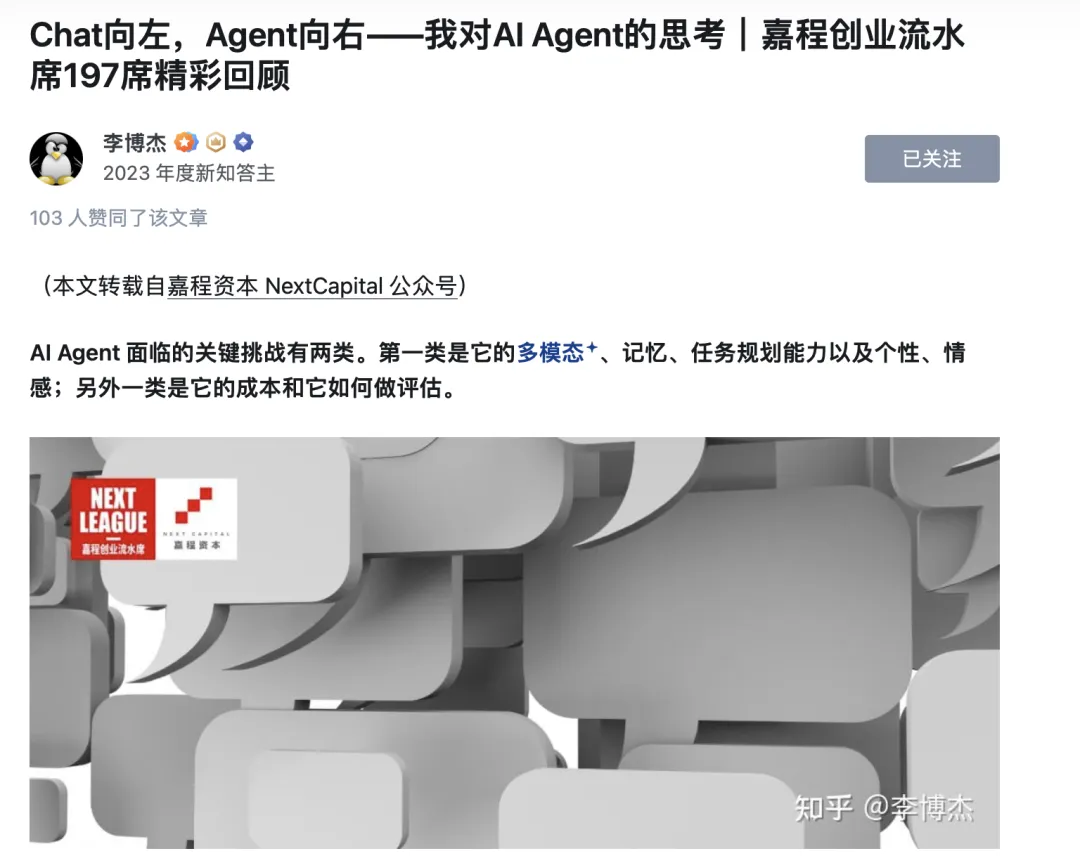 Image
Image
Image: Li Bojie’s lecture titled “Chat to the Left, Agent to the Right,” original link https://zhuanlan.zhihu.com/p/668553858
Secondly, any scenario involving complex workflows also requires Agents. For example, if I want to create an assistant to summarize my previous study notes and ask questions based on them, this involves an Agent. Because the number of my study notes is huge, it is impossible to input them all into the large model at once. In this case, an external Agent is needed to extract or summarize relevant content. This process may include information screening, summarization, and key extraction to simplify the complexity of information processing. Then, the generated content may not be enough to answer the question, and it may be necessary to ask again, using different methods to search, obtain new information, and then provide an answer. This situation usually occurs when the information in the knowledge base does not cover the user’s current needs. In fact, the complexity of processing information lies in the fact that the Agent needs to continuously optimize the answer through multiple iterations and feedback to ensure that the final generated content can meet the user’s needs.
This is the so-called Agent workflow, which needs to complete tasks step by step. In this process, the feedback mechanism is very important. The Agent must adjust its next action based on user feedback and environmental changes to ensure the effective advancement of the task. For example, if the generated content is incomplete, the Agent may ask the user to further clarify the needs or provide more contextual information. This feedback is not just simple input and output but a dynamic, interactive process, just like humans handling affairs, must gradually adjust actions based on environmental changes.
When we handle tasks, we can’t prepare all the inputs at once and then directly output them. We take the next steps gradually based on changes in the environment and feedback. This flexibility is especially necessary when dealing with complex tasks, just as humans must be flexible in actual operations, advancing step by step to ensure that each decision is based on the latest feedback and information.
“Seizing Opportunities in the AI Era”
Snail Shell Advanced Alliance: AI development is very rapid and full of uncertainties. For example, the field of computer vision (CV) was once very popular, but now it seems to be neglected. How do you think individuals should grasp direction and seize opportunities in such a fast-developing AI environment?
Li Bojie: I think there are two main aspects. First is to leverage comparative advantage. As I mentioned earlier, choosing a field is not because it is the hottest, but because of one’s own advantages. The specific definition of comparative advantage refers to gaining a competitive edge over others in a specific field by leveraging one’s skills and experience. A popular field means many people will participate, and the competition will be very fierce. If I don’t have an advantage in a certain field, blindly following the trend is not wise, as the pressure of competition will put me at a disadvantage. For example, when starting a business, I wouldn’t choose to train foundational models because my understanding of foundational models is limited, and many people are already specializing in this field. Therefore, finding one’s unique advantage in a certain field is crucial to seeing opportunities that others have not discovered. I believe this is the importance of comparative advantage.
The second aspect is the choice of direction. The AI field is developing very rapidly, and many old algorithms, such as some traditional computer vision and natural language processing algorithms, may soon become obsolete. New algorithms are emerging one after another, and the development of foundational technologies like transformers is also extremely rapid. We cannot expect a technology to still be applicable ten years later. Even OpenAI says it has no moat, so how can I have a moat? Therefore, I believe it is essential to lay a solid foundation and master the theories and algorithms that are long-term useful in the AI field. Additionally, continuous learning is very important, and maintaining an open mindset is key. Always keep a learning attitude and continuously absorb new knowledge.
I personally think that in this wave of AI entrepreneurship, many experienced AI professionals have a higher failure rate because their thinking patterns are relatively fixed and they are unwilling to accept new technologies, which can lead to significant problems. As ByteDance’s slogan says, “always day one,” which means always maintaining the mindset of the first day, whether in entrepreneurship or research, always facing new things with an open attitude.
Snail Shell Advanced Alliance: Do you think individuals have the ability to grasp future AI development trends or predict which new trends will emerge? Can individuals achieve this, or should our focus be on cultivating the ability to learn quickly so that we can change direction promptly when opportunities arise?
Li Bojie: Both are important. First, predicting future development trends is indeed crucial, which can also be understood as a kind of research taste. For example, there are differing opinions on whether artificial general intelligence (AGI) can be achieved. Some people believe AGI will never be realized, while I believe it is possible. This view reflects the differences in researchers’ thinking, especially regarding the realization of AGI and its potential impact. Additionally, in terms of technical details, such as when generating videos and images, whether diffusion models are more reliable in the long run or autoregressive models are more effective will affect the choice of research direction. These different models have their own advantages and limitations in application scenarios.
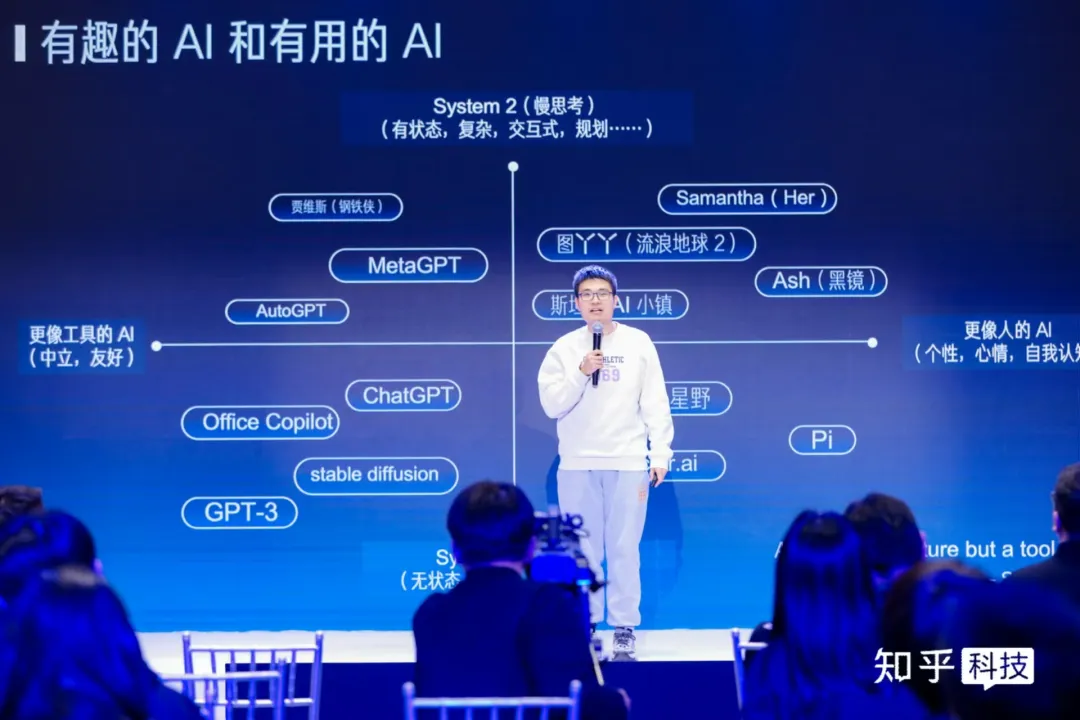
Image: Li Bojie giving a report at the Zhihu Pioneer Salon
This ability not only relies on the accumulation of theoretical knowledge but also requires time and practical experience. At the same time, it is necessary to maintain the ability to learn quickly to respond flexibly and adjust when new opportunities arise. As technology develops, we also need to continuously revise our models for predicting the future and continuously refine our research taste. For example, before and after large models, the criteria for good research taste may be completely different.
“Embracing AI Enhancement”
Snail Shell Advanced Alliance: It seems that AI is developing very rapidly now. Do you think this technology will lead to unemployment issues? In the AI era, everyone seems worried about being replaced. How do you think one can enhance their irreplaceability?
Li Bojie: This is an important question. Regarding irreplaceability and unemployment issues, indeed, some people will lose their jobs, but unemployment often occurs because these people are unwilling to learn new knowledge. If they are willing to learn and master AI technology with an open mindset, that is, if they are willing to adopt the “always day one” mindset to learn AI well, they will not be unemployed. In fact, AI greatly enhances our work efficiency. For example, when writing code using AI, efficiency may increase several times. What used to take me a week to complete may now be done in two days, making the comparison of work efficiency particularly evident.
If I can master these advanced AI tools first, my work and learning efficiency will be significantly higher than others, especially when others have not yet learned to use AI, my first-mover advantage will make me stand out.
The second question is whether the overall demand of society will shrink as a result. I don’t think it will. Although AI reduces costs, overall demand will increase. For example, I previously had many small projects I wanted to do, but I couldn’t realize them due to lack of time and a team, and hiring a team required management, which was also very complex. However, now that AI’s capabilities are strong enough, I only need a small team to complete projects that originally required a large team. This way, many ideas that only existed in my mind can become reality, and more creativity can be realized.
For example, many traditional industries do not have digital work processes and rely only on simple tools like Excel spreadsheets, lacking automated management. Each industry’s work process is different, and the cost of customized development is very high, making it uneconomical to do a lot of customized development. Huawei stopped doing such industry-specific development a long time ago because the software cost was too high.
Now, with the improvement of AI’s code development capabilities, as long as an industry has clear documentation describing its needs, suitable software can be developed based on these requirements. This way, development efficiency is improved, and digital transformation and automation in many industries become feasible. Therefore, I believe AI can stimulate many new demands, and there is no need to worry too much about unemployment.
Of course, unemployment will objectively exist, just like during the Industrial Revolution when machines replaced manual labor. If a person is unwilling to learn to operate machines and still wants to continue manual labor, they may eventually be eliminated. Similarly, if I am a programmer writing code but refuse to learn AI-assisted programming and stubbornly insist on writing code line by line manually, I may also face the risk of being eliminated in the future.
Snail Shell Advanced Alliance: You mentioned that AI can significantly improve personal work efficiency. Can you share how you use AI tools in your daily work and study? Do you have any good methods to recommend to students?
Li Bojie: I think there are several good tools. First, in terms of writing code, I think Cursor is a very good choice. Windsurf is also a similar AI-assisted code development tool. If you have more money, you can try Devin, which is a more automated tool.
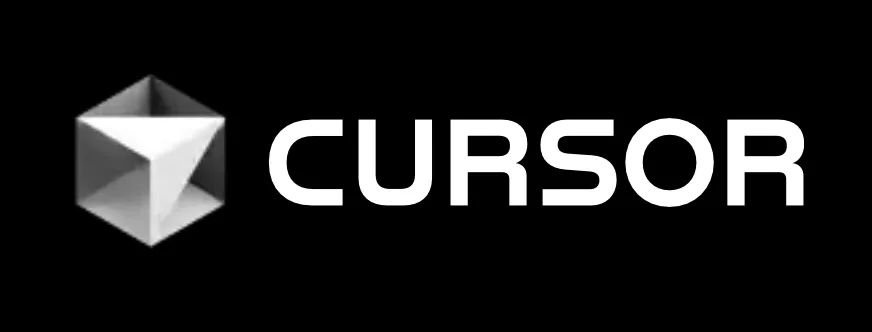
Image: AI programming assistant tool Cursor
In addition, I often use AI chat assistants to solve daily problems. Since I am involved in AI myself, I might choose to deploy my own set, using an open-source software called OpenWeb UI. The feature of this open-source tool is that it can be customized according to one’s needs. The user experience of this tool is better than ChatGPT because ChatGPT is mainly aimed at ordinary users, and to save costs, it uses many tricks in some functions. For example, when uploading a book, it won’t directly put the entire book into the model’s prompt but will take some excerpts to answer. This method can save operating costs but sometimes leads to inaccurate answers. I don’t want it to only extract one chapter from the book, resulting in incorrect answers. This may affect the completeness of the information I obtain. I would rather spend more money to ensure the accuracy of the answers, so I might prefer to use more professional tools.
No matter which tool you choose, the key is to use it frequently. For example, many times I suddenly think of a question and don’t want to spend time searching. Through AI, I can quickly get common-sense answers, which greatly enhances my efficiency in learning new knowledge and solving problems. My ability to learn new knowledge has also improved significantly. Now, models like o1 perform well in reasoning ability and can effectively solve math and science-related problems. Although not guaranteed to be completely correct, they can at least provide a thought process to help us understand the problem. I remember when I was in college, many courses were math and physics, and if I didn’t understand the problem, I didn’t know where to find the answer. Sometimes I could only ask other classmates, but if that classmate didn’t know or made a mistake, it would be very complicated and troublesome. At that time, the teacher or teaching assistant might just give you a cross, but you still didn’t know why it was wrong, and there was no reference answer in the book, which caused me a lot of difficulties in the learning process. With the help of AI, we can now more conveniently obtain the information we need, solving many learning problems. I think having AI now can provide us with a lot of convenience. Additionally, I think using AI to learn English is very practical. Especially since ChatGPT supports voice chat, with standard pronunciation, it is also very helpful for learning spoken English.
Snail Shell Advanced Alliance: Many non-computer science students at USTC are considering switching to the AI field because they feel AI is very popular and want to change careers to participate in this trend. What do you think of this phenomenon? Do you have any advice for these non-computer science students who want to switch to AI?
Li Bojie: I don’t think everyone needs to switch to AI. We can understand AI as a tool, similar to a computer. Many people who study computer science are actually making computers, but most people only need to learn how to use computers, and the same goes for AI. Not everyone needs to learn how to build an AI model or train a better model.
I notice that many people are panicking about missing AI opportunities and have a so-called FOMO, or “fear of missing out,” so they all want to change careers. This phenomenon reflects a sense of urgency, and many people are afraid of missing the opportunities brought by AI. However, the development of AI algorithms changes rapidly, and it may form a bubble. Many people entering this field will face fierce competition, and in the end, many people may be exhausted by the competition. So, unless you have a talent for algorithms and can make some innovations in this area, I suggest everyone stay calm. A calm approach includes thoroughly researching the application of AI technology, understanding the needs of your field, and trying to use the best existing models and AI products in the world to see how these tools can bring changes to your field. This approach may be more practical.
Snail Shell Advanced Alliance: Thank you very much for sharing! Do you have any other advice or messages for the students?
Li Bojie: Hahaha, I think I can say this: I hope the junior students at USTC can live happily and find what they are truly interested in. In the process of finding interests, everyone can try different fields and actively participate in various activities to help themselves explore better. This is an important process. The key to university education is not how much knowledge you have learned but cultivating a learning ability and discovering your true interests and direction. These are the most important things in university life, in my opinion. Moreover, I suggest that while pursuing knowledge, students should also communicate more with others, broaden their horizons, and build networks, which will greatly benefit their future career development. As you accumulate knowledge, cultivate abilities, and expand your network, more opportunities will await you in the future.
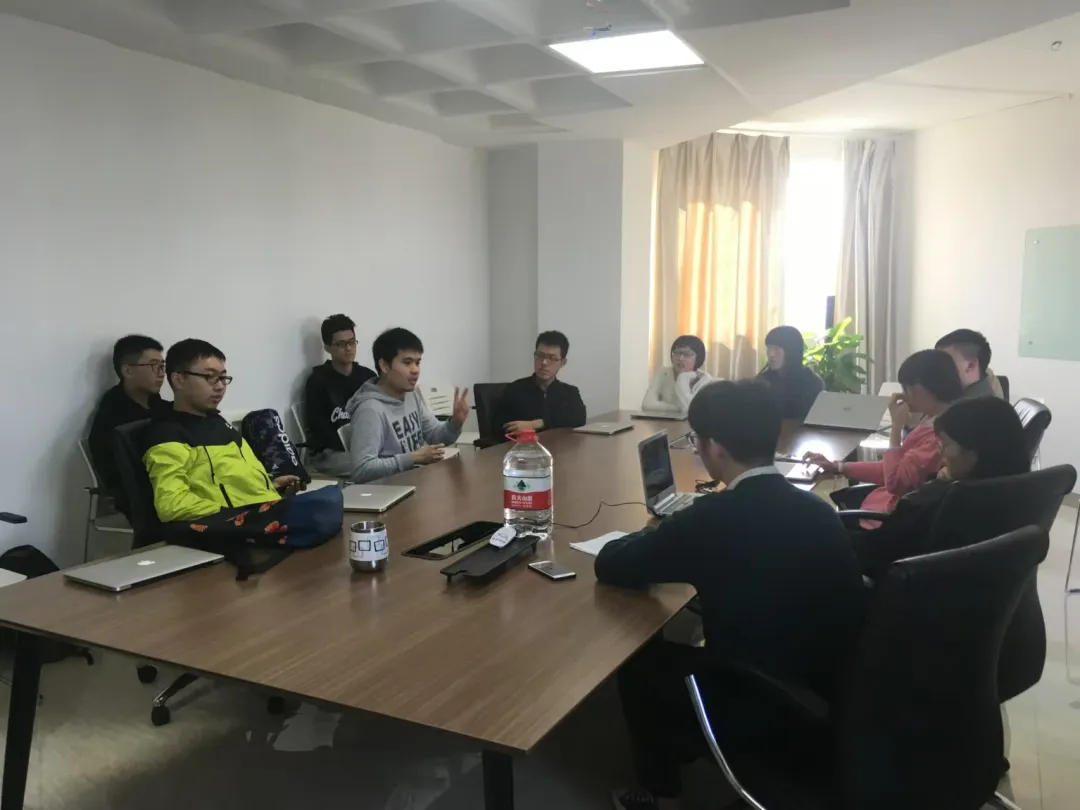 Image
Image
Caption: Participating in an academic discussion in Professor Tan Haisheng’s lab at USTC, which was also the first meeting between Li Bojie and his wife.